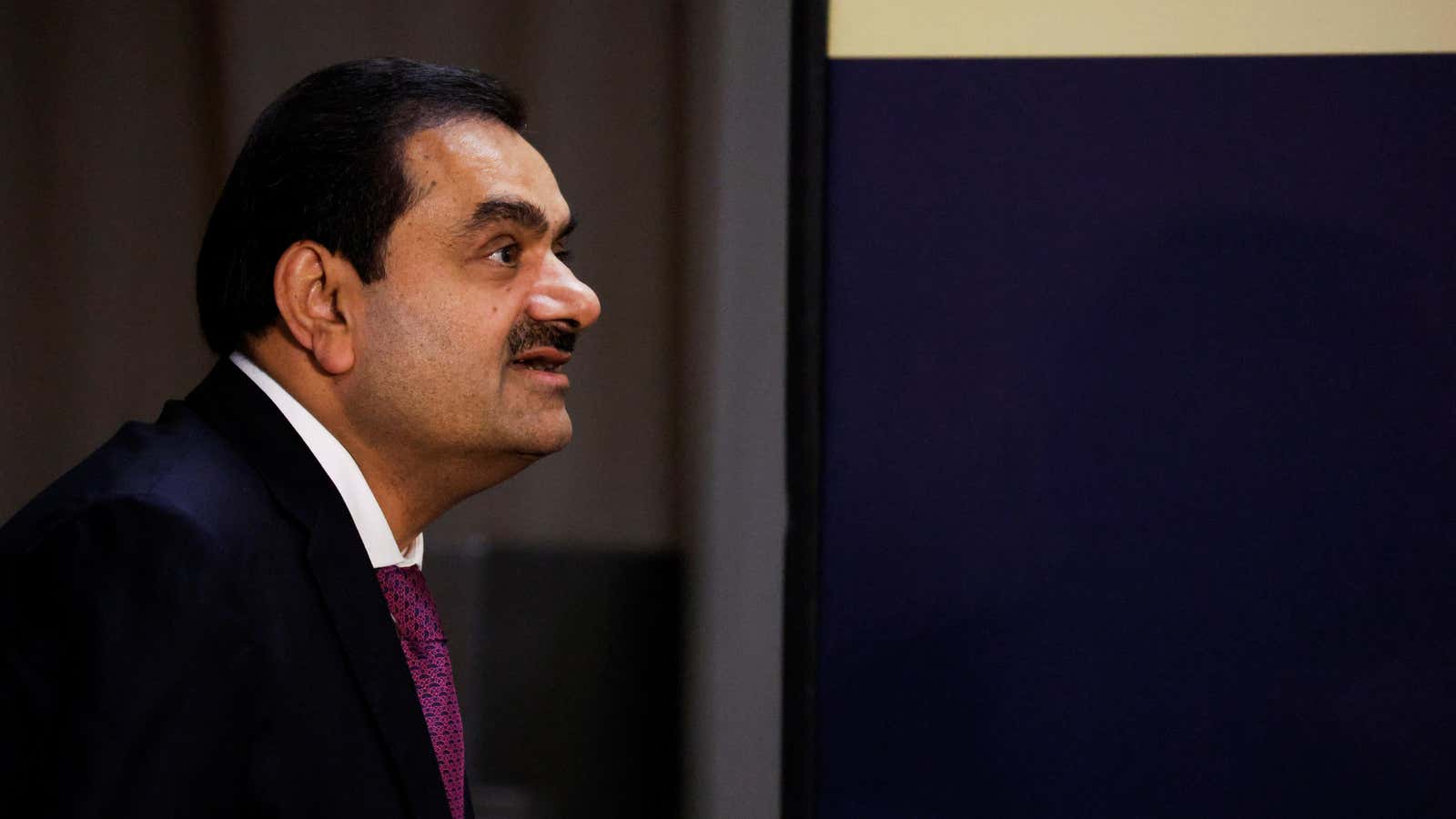Beleaguered Indian billionaire Gautam Adani is trying everything to win back investors’ confidence after a massive stock rout eroded over $140 billion of his group’s market value in a month. The efforts through road shows and negotiations seem to have paid off as the conglomerate has now reportedly managed to sell stakes in its firms to GQG Partners for $1.9 billion.
This share sale to the Australia-listed GQG marks the first major investment in the Adani group since the short-seller Hindenburg’s explosive report published on Jan. 24.
GQG has, through block deals, bought the Adani family trust’s shares in Adani Enterprises, Adani Transmission, Adani Ports, and Adani Green Energy, a regulatory filing showed. The deal was brokered by Jefferies.
GQG, co-founded by Rajiv Jain, manages assets worth $88 billion in global equities funds. Jain is quite optimistic about the Adani group’s prospects, according to Australian Financial Review (AFR).
“Adani Green Energy is by far the fastest and the largest private sector green energy company in India. They’re rolling out almost 3 gigawatts annually. So, I think some of their assets are fantastic,” Jain told AFR.
Who is Rajiv Jain?
Born and raised in India, Jain moved to the US in 1990 to pursue an MBA at the University of Miami. He began his career at Vontobel Asset Management in 1994 as a portfolio manager, his LinkedIn profile shows.
Jain went on to become Vontobel’s chief investment officer and head of equities. Between 2014 and 2016, he even served as its co-CEO.
In 2016, Jain founded GQG Partners and took up the role of its chairman and CIO. “He plunks down huge sums of money on individual stocks and, in a heartbeat, can bail on an entire position—the sort of bold moves most in the industry avoid. Moreover, in talking with him, it quickly becomes clear that he doesn’t make much of his rival stock-pickers,” Bloomberg wrote about him in a profile last month.
Jain is touted as a “more cautious” growth manager than others, according to Gregg Wolper, a senior analyst at Morningstar, a US-based financial services firm. His portfolio consists of defensive stocks, but he is a risk-taker.
“We try to take less absolute risk,” Jain told Bloomberg. “The businesses we own generate a lot of free cash flow. So the risk of us losing on an absolute basis is a lot lower. But sometimes that means you have to take more relative risk.”
Also, Jain invests in only 40-50 large-cap stocks, compared to the benchmark’s more than 2,000.
The post-deal movement of Adani and GQG shares
Following the announcement of GQG’s investment in Adani, stocks of the Indian conglomerate’s seven listed firms surged today, a few even hitting the upper circuit.
Since Jan. 24, the Adani stocks have lost 57% ($122 billion) of their market value. A four-day rally this week, however, has taken the 10 Adani group scrips’ overall market cap to $101 billion.
GQG Partners was listed on Australia’s stock exchange in October 2021, raising $794.97 million, making it the country’s top listing of the year. Today, the stock fell by up to 3% in reaction to the Adani investment news.
Jain, who holds a 68.8% stake in GQG Partners, told Reuters that his company had carried out a “deep dive” into Adani and disagreed with Hindenburg’s report.
